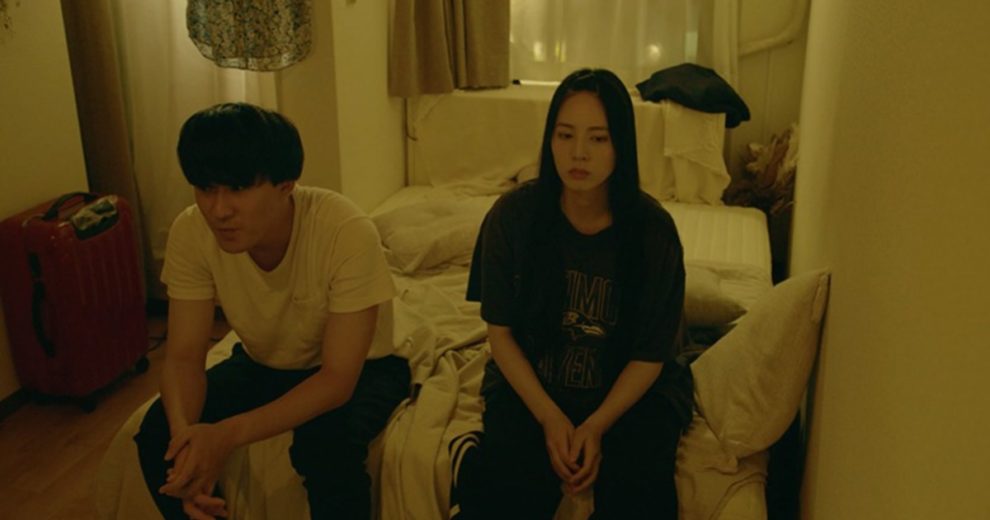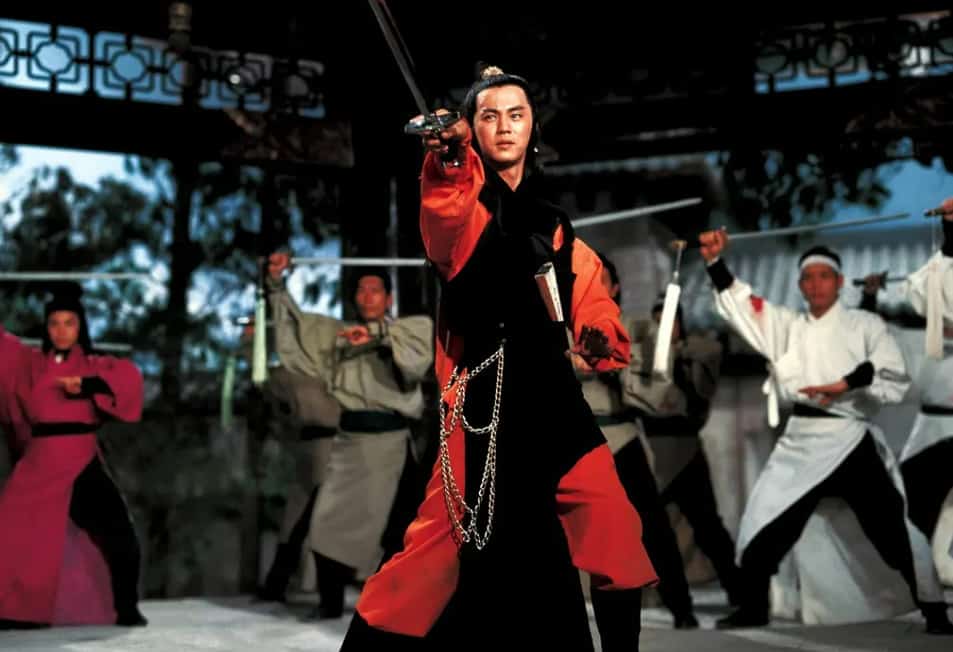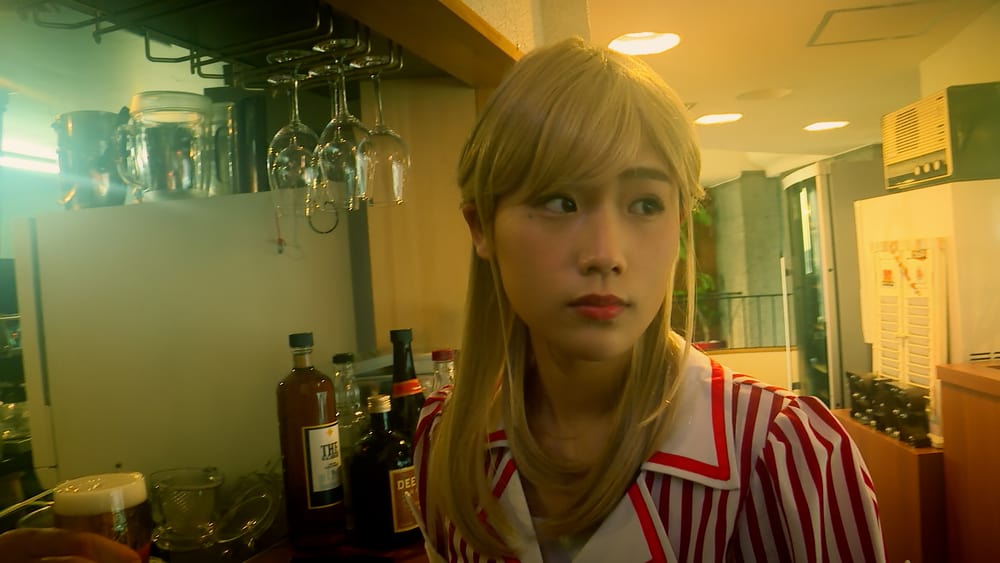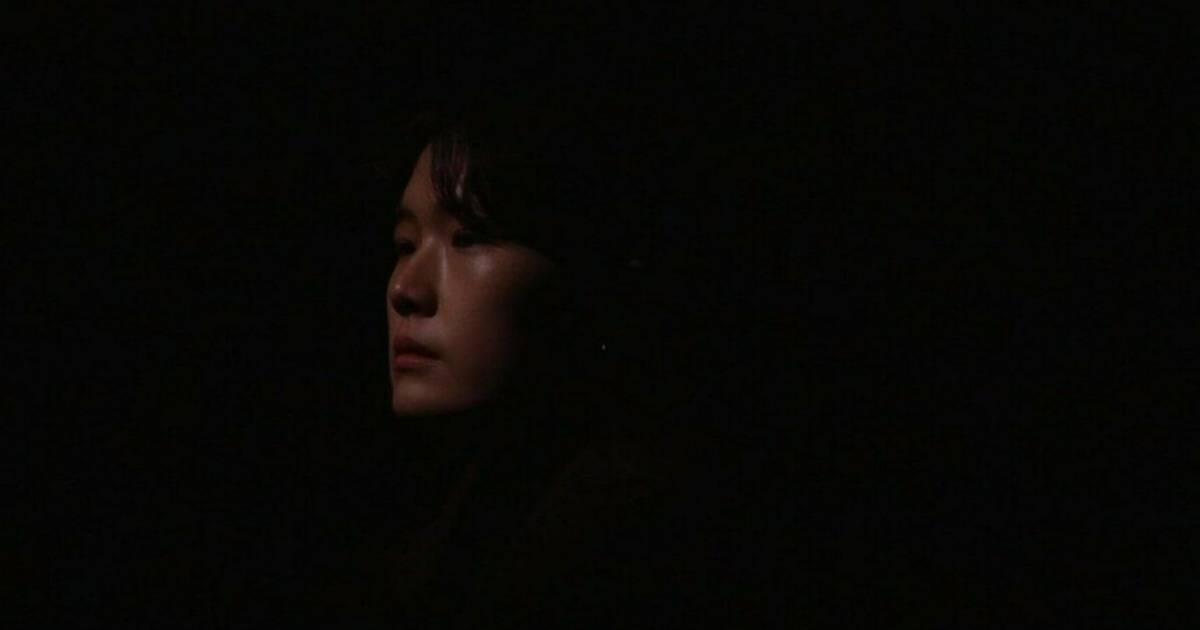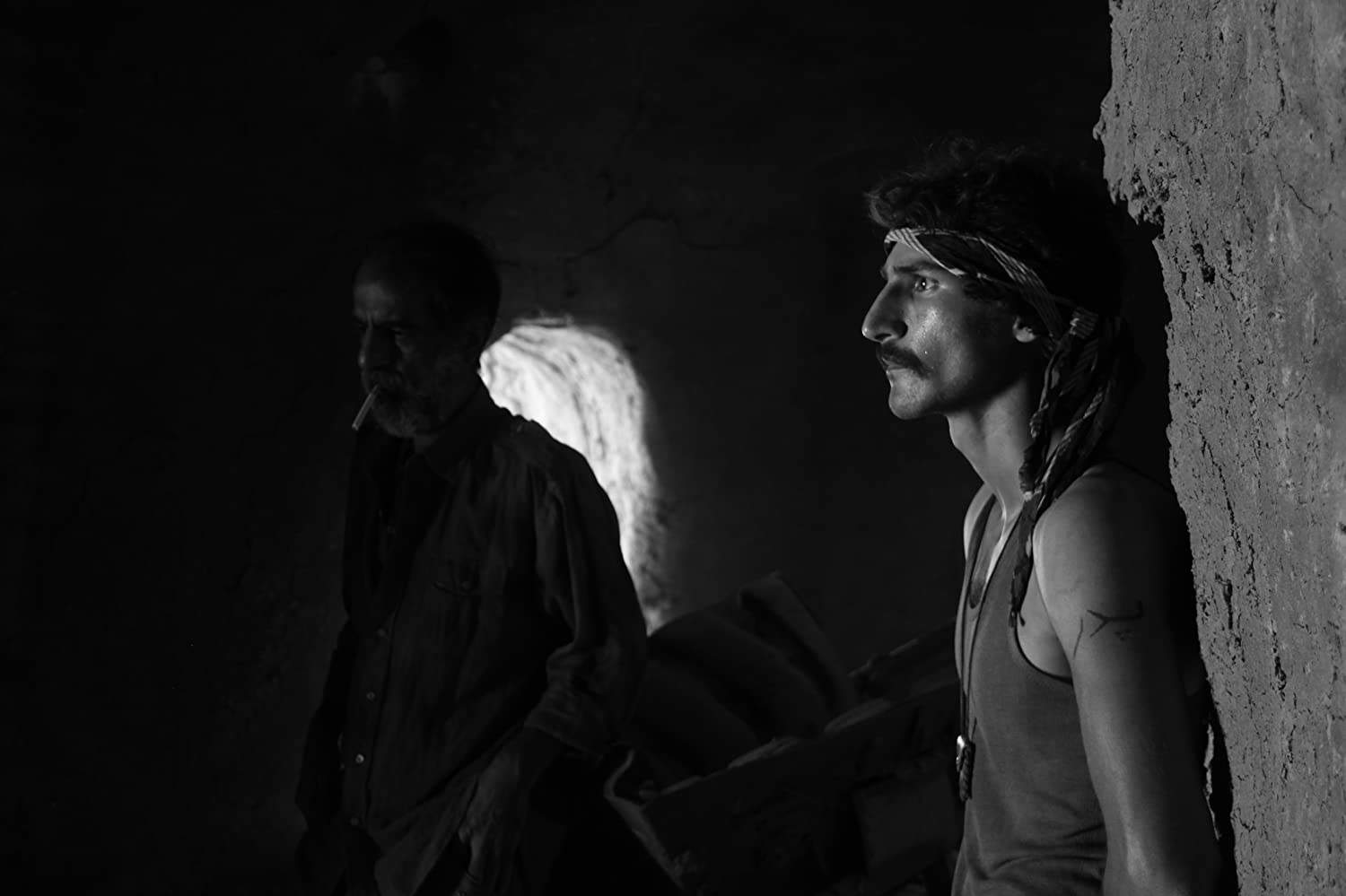One of the most recent trends of indie cinema, in its ever ending effort for more intense realism, are stories about people who are not exactly good or likable, more “grayish” if you prefer. Despite the somewhat misleading title, Yusuke Noro actually directs a social movie in the aforementioned form, whose dialogue-heavy approach results in a series of very interesting comments.
“We're Dead” is screening at Skip City International D-Cinema Festival

Reiji, an unsuccessful comedian who is still trying to make it as a duo with his partner, lives with Nanase, a company employee. However, he actually wants to break up with her, but in his immaturity, instead of just telling her, he is trying to make her break up with him. Nanase feels that something is wrong but is not exactly willing to face the issue in her hands, as her discussions with a colleague on the rooftop of their office building reveal. Around that time, a new employee in the company, Shun, begins flirting with her in subtle but obvious fashion, essentially trying to intrigue her with interesting conversation about love and life. Nanase does not exactly turn him down, but instead decides to use him in order to test her feelings for Reiji, but also his for her. Inevitably, things do not go exactly as planned.
As mentioned in the prologue, the most central characteristic of the narrative is that none of the protagonists is actually decent. Reiji is rather immature and treats Nanase poorly, while the only person he is honest with is his comedy partner. Nanase uses Shun in a rather sly fashion, essentially encouraging him but not exactly meaning it. Shun on the other hand is equally sly into trying to woo a girl who has a relationship with someone else, while, when things go south, he also emerges as rather immature.

At the same time though, the interactions of the three result in a series of very interesting comments about relationships, love and how the work people do actually affects both the aforementioned. The fact that relationships are becoming more and more difficult in this contemporary setting is also remarked upon, with Noro seeming to state that immaturity, the lack of expression regarding one's feelings, and the self-centered way of thinking that characterizes many youths these days, make sincere and meaningful romantic interactions essentially impossible.
This very interesting context and the way it is presented, through an approach quite heavy on dialogue, actually works excellently for the movie, even creating empathy for the protagonists, just because they are so real. Furthermore, a holding of hands in the night and the presentation of the thoughts of the characters in “bubbles” just visible to the viewer also emerge in the same path, while providing the two highlights of the film. Lastly, the mid-length duration, just a bit shy of one hour, is ideal for the narrative, which would have become tiresome if it continued for more time. Adding to all that the accomplished cinematography and the editing that results in a rather fitting mid-tempo, and you have a movie that could easily be described as a gem.
This review would not be complete without mentioning the convincing performances, with Kenji Shio as Reiji, Kosuke Fujita as Shun and Kaho Taguchi as Nanase presenting their imperfections in the most realistic fashion, in perfect resonance with the overall aesthetics.
Considering the length, context and the quality of production, despite the fact that is obviously low, “We're Dead” emerges as a film that shows a way Japanese indie dramas could follow, to finally stop looking so much like each other, and even more, to finally become easy to watch, even by people who are not fans of the whole indie/art-house approach.


